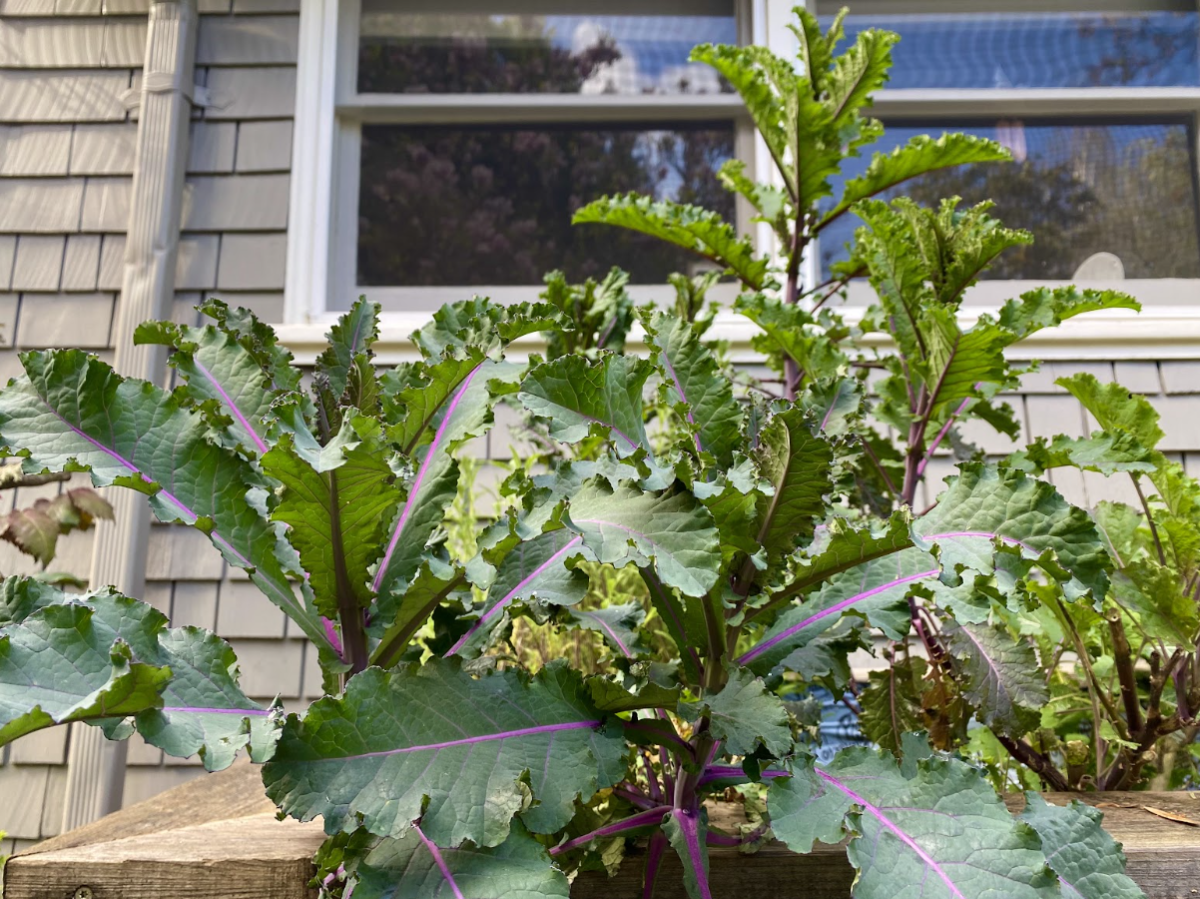The bee population is on the decline, and while recent news stories may offer grim hopes for their prosperity, three Redwood students have taken on the task of keeping beehives in their backyards in an attempt to help the bees in the little ways that they can.
Senior Olivia Runnfeldt has kept beehives in her Napa house since June.
“Ever since we’ve lived in Napa, my dad’s been really into gardening and farming and it was always something that was really interesting to him,” Runnfeldt said.
While taking care of bees is a relatively easy process, Runnfeldt said it gives her a rewarding feeling to know that she is helping the environment. Currently, bees help to produce about one-fourth of our nation’s food.
“It definitely helps the environment and people obviously know about it,” Runnfeldt said. “It spreads the word about how they need help or how we should be working in the community to help them.”

According to sophomore and bee-owner Gracy Buckholtz, the first step for keeping bees is to buy a hive, which typically holds 10,000 bees and one queen. Supplies such as a white suit that protects the beekeeper from getting stung, or a smoker, which keeps the bees calm, can be bought at bee stores like Green Gulch in Muir Beach.
According to Buckholtz, the bees need sugar water when they are young before they know how to feed themselves, but after that, there is virtually nothing else an owner needs to do.
Buckholtz has kept bees intermittently for the past five years. The decline in the bee population was one of the motivating factors in her family’s decision to keep bees.
“We saw that they were declining and we were worried,” Buckholtz said about herself and her family. “We wanted to be sure that they could continue because they’re so important for the environment. ”
Buckholtz’s neighbors provided her with a protective suit, as well as knives to open the hive caps. Though bees require different care from a household pet such as a cat or dog, she found that there weren’t too many tools she needed to obtain to care for the bees.
Junior Ruby Elson has also kept bees since 2009 and said that only during swarming or honey season do her bees need much care.
Elson finds the sharp decline in their population upsetting. However, she is inspired by her mother, who attended a conference in North Carolina to petition against a harmful insecticide company. Her mother appeared at the conference with a list of signatures and presented to the company what was happening to the bees, giving examples of other companies who have found pesticides that aren’t harmful.
Elson finds that helping the bees gives her a sense of fulfillment.
“I think it’s good that I’m doing my part,” Elson said. “They’re lower maintenance than a cat. The main thing is you just let them do what they do because for the most part, they’re set.”
Elson and her family recently moved to an apartment, which meant they could no longer keep their bees. Instead, they gave them to friends nearby who were willing to care for the bees, and Elson occasionally checks on them.
Elson finds that bees have helped her meet new people.
“It’s a good conversation starter,” Elson said. “In fifth or sixth grade, I was selling [honey] and I [developed] good social skills. I interacted a lot with people.”
Runnfeldt, Buckholtz, and Elson each found that their neighbors were appreciative of the bees.
“We told our neighbors and they seemed pretty happy because they have gardens, too, and they were happy to get the bees to pollinate,” Buckholtz said.
None of the three beekeepers have found beekeeping a time-consuming process.
“It was relatively easy. There are a lot of bee advocates who want to spread the word about extinction. There are a lot of people who want to help them,” Runnfeldt said.












